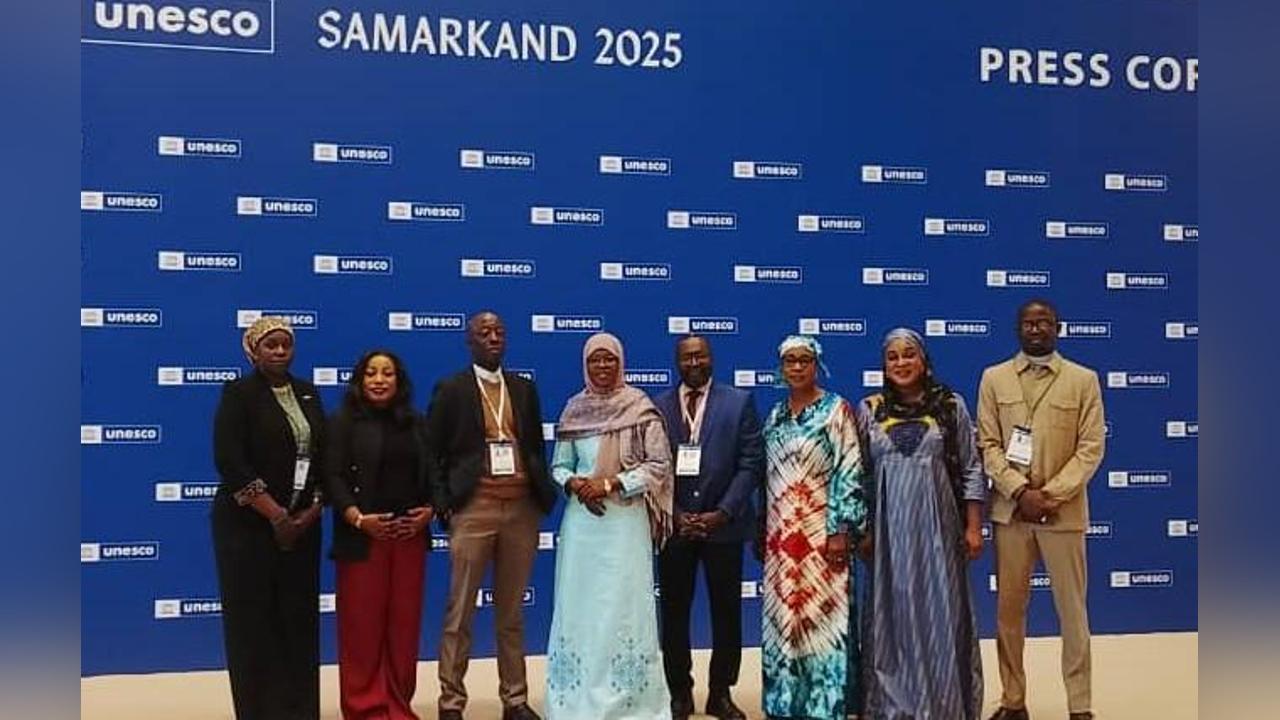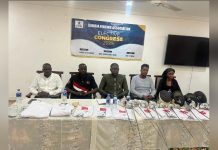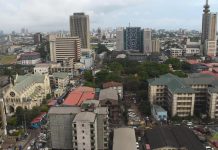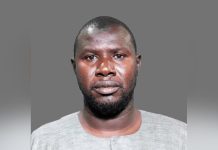Africa-Press – Gambia. The Gambia has joined member states of the United Nations Educational, Scientific and Cultural Organization (UNESCO) at its 43rd General Conference, currently taking place in Samarkand, Uzbekistan.
This year’s gathering marks a historic moment, as the biennial conference is being held outside UNESCO’s Paris headquarters for the first time since 1985. It is only the fourth time in the organization’s history that the event has been staged outside Europe.
The Gambia, on Monday, 3rd November 2025, delivered its national statement during the conference’s high-level policy debate. The delegation was led by the Minister of Basic and Secondary Education and Chairperson of the Gambia National Commission for UNESCO, Hon. Dr. Habibatou Drammeh.
Dr. Drammeh underscored the country’s commitment to UNESCO’s mission, describing its mandates in education, culture, science, information, and youth empowerment as “drivers of sustainable development, freedom, and peace in a rapidly evolving technological era.”
She highlighted sweeping reforms underway within the national education sector, including efforts to expand access, improve teacher training, modernize curricula, and upgrade learning infrastructure at all levels. The minister also noted the government’s priority investment in Technical and Vocational Education and Training (TVET) to equip young Gambians with skills essential for the future job market.
As technology takes center stage globally, Dr. Drammeh said The Gambia is preparing to harness artificial intelligence and digital learning tools—while ensuring their ethical and responsible use.
The education minister celebrated UNESCO’s official recognition of the Soninke language, which she said reflects the country’s pride in promoting multilingualism and preserving cultural identity.
Early childhood education, she said, remains central to national development efforts: “Every child deserves a strong start and an equal opportunity to thrive.”
In the fields of science, technology, and innovation, Dr. Drammeh emphasized the government’s push toward evidence-based policymaking and the establishment of innovation hubs to nurture young researchers in developing solutions to national challenges.
On safeguarding cultural heritage, the minister reported progress following The Gambia’s ratification of UNESCO’s 1970 and 2001 conventions. She said work has been completed on a national inventory of intangible cultural heritage, ensuring the preservation of the country’s “rich and vibrant traditions.”
Dr. Drammeh further acknowledged UNESCO’s ongoing support in strengthening media literacy, digital inclusion, and fact-checking initiatives, especially among women and rural populations. Youth and gender empowerment, she reminded the audience, remain at the core of The Gambia’s national development blueprint with growing opportunities for entrepreneurship, digital innovation, and green jobs.
The delegation, which included Ambassador Ebrima O. Camara, Permanent Delegate of The Gambia to UNESCO, officials of the National Commission, and technical representatives from aligned ministries, continues to actively participate in sessions covering education policy, cultural preservation, communication reforms, and scientific cooperation.
UNESCO’s General Conference brings together member states every two years to shape the organization’s strategic priorities and global programmes.
For More News And Analysis About Gambia Follow Africa-Press






